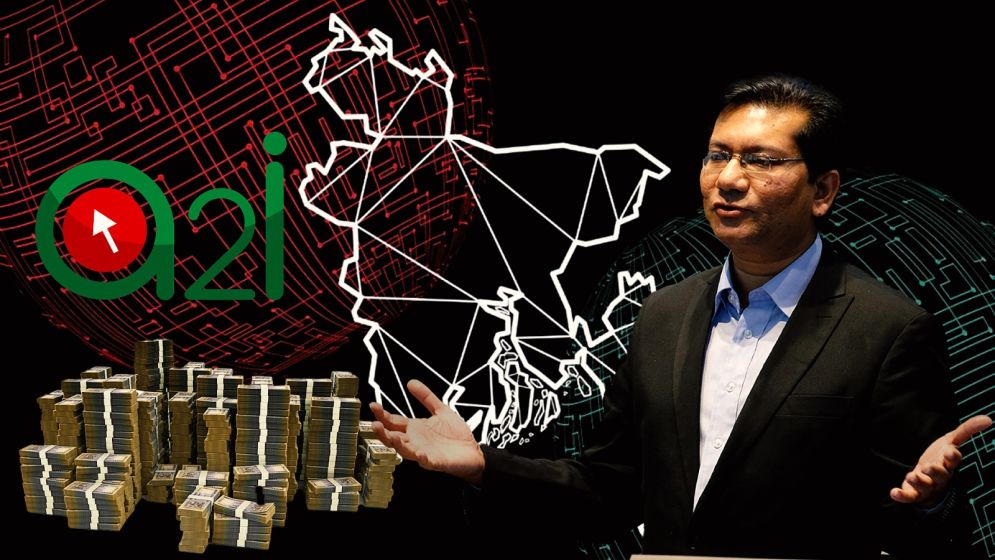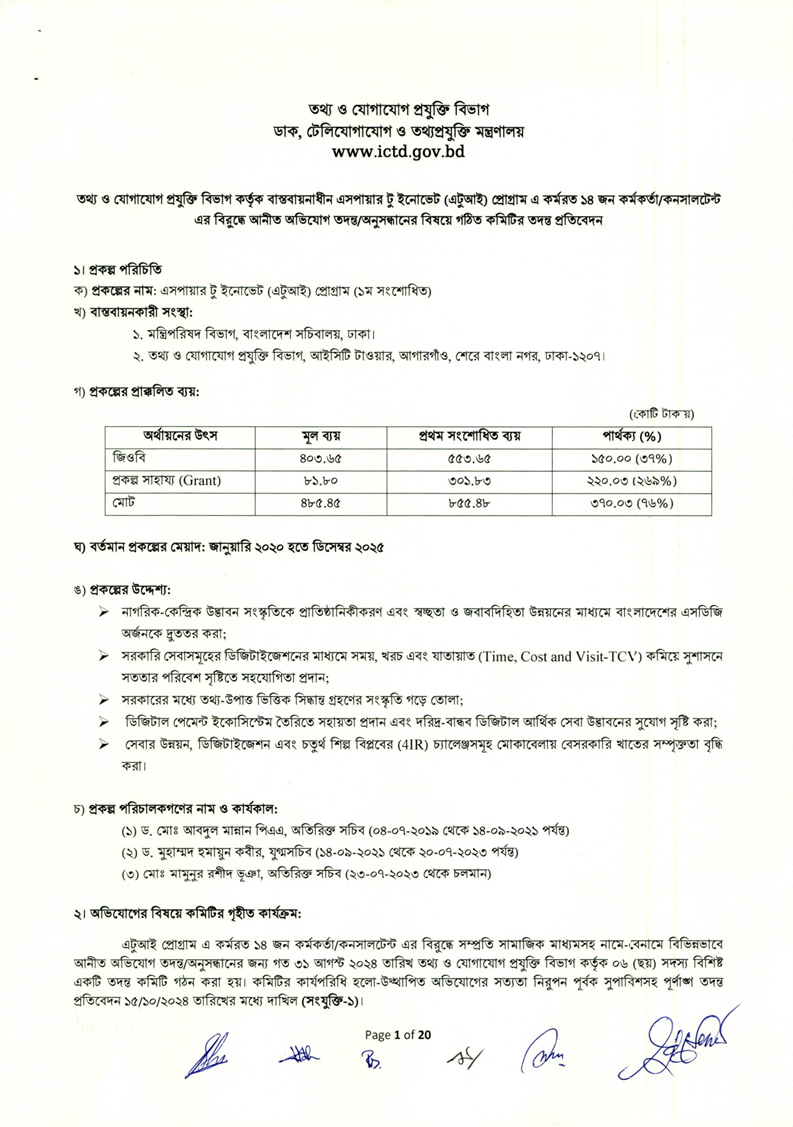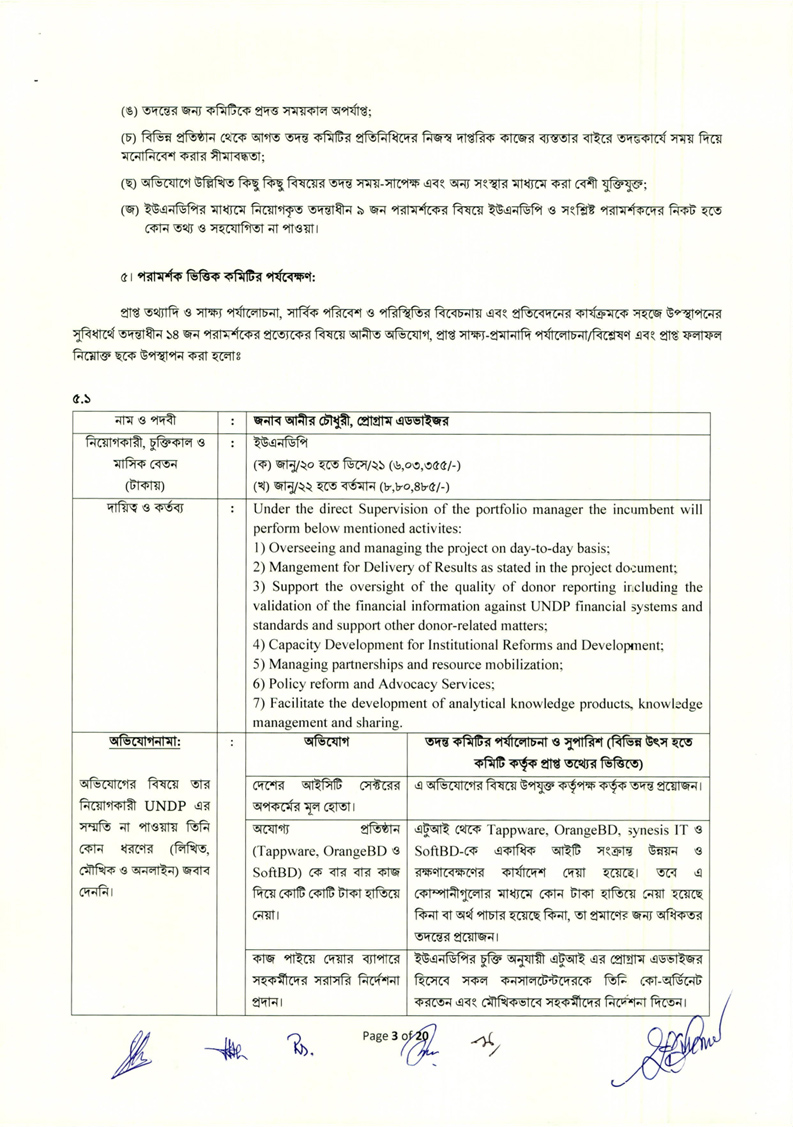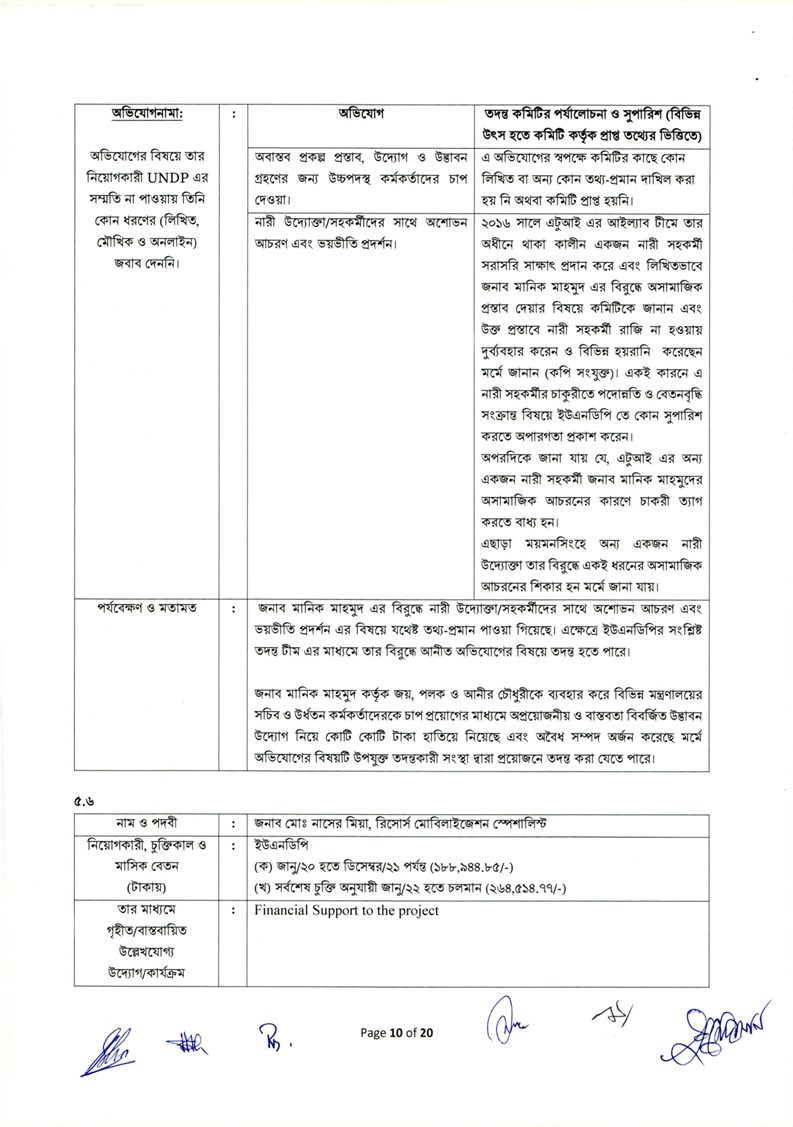How a2i project of Awami League government was used for collective looting

The Aspire to Innovate (a2i) program, initially launched with lofty ambitions to drive Bangladesh’s digital future, has instead become a major avenue for corruption and exploitation by close associates of the ousted Awami League government.
From high-ranking project consultants to e-file implementation experts, a total of 14 senior officials turned this program into a haven for their misconduct.
Allegations against them range from extensive looting in procurement processes and money laundering to illegal overseas travel, asset accumulation, and funneling contracts to affiliated institutions.
Additionally, charges include embezzling funds through fake bills and vouchers, making illegal appointments, inappropriate behavior toward female colleagues, engaging in political party promotions, and indulging in alcohol-fueled nights at clubs.
A committee was recently set up to probe these allegations.
The a2i initiative was conceived in 2009 after the Awami League came to power, with funding from the United Nations Development Program (UNDP), to realize the vision of a “Digital Bangladesh” under the Prime Minister’s Office.
In 2018, at the direction of the Prime Minister, the program was transferred to the Ministry of Information and Communication Technology (ICT).
 The program was renamed Aspire to Innovate
(a2i) in 2020, and later introduced as a bill— the "Agency to Innovate
(a2i) Bill-2023"— under the leadership of former ICT State Minister
Junayed Ahmed Palak.
The program was renamed Aspire to Innovate
(a2i) in 2020, and later introduced as a bill— the "Agency to Innovate
(a2i) Bill-2023"— under the leadership of former ICT State Minister
Junayed Ahmed Palak.
The bill was passed in Parliament, further cementing the program’s institutional foundation.
Upon closer scrutiny, it was revealed that the project was slated to run from January 2020 to December 2025, with initial estimates of the total cost set at 485.45 crore taka.
Of this, 403.65 crore taka was to come from the government, and 81.80 crore taka was expected to be funded through external assistance.
However, as the project progressed, these figures were revised, pushing the total cost to 855.48 crore taka. The government’s share rose to 553.65 crore taka, while the assistance fund ballooned to 301.83 crore taka.
It is now clear that, being a UNDP-assisted program, a large portion of the senior consultants were appointed by the international organization, though they operated under the guidance of the government.
Despite the outward appearance of governance and progress, the reality is that a2i became a breeding ground for corruption, with the project ultimately morphing into a vehicle for personal gain for those within the inner circles of the Awami League.
Following the student uprising on August 5, a wave of corruption allegations surfaced against these officials, with reports detailing a range of fraudulent activities.
In response, the Ministry of Information and Communication Technology formed an investigation committee on August 20 of the previous year to look into the claims.
By October 20, the committee had submitted its findings, prompting actions by the current interim government. The investigation report has since been obtained by Bangla Outlook.
 According to the documents, the primary goal
of the project was to institutionalize a citizen-focused innovation culture and
expedite Bangladesh’s achievement of its SDGs through enhanced transparency and
accountability.
According to the documents, the primary goal
of the project was to institutionalize a citizen-focused innovation culture and
expedite Bangladesh’s achievement of its SDGs through enhanced transparency and
accountability.
The project aimed to foster a governance environment built on integrity by digitizing public services to reduce time, costs, and travel.
It also sought to establish a culture of data-driven decision-making within the government, support the creation of a digital payment ecosystem, create opportunities for the development of poverty-friendly digital financial services, and boost private sector involvement in service development, digitization, and addressing the challenges posed by the Fourth Industrial Revolution.
Dr. Md. Abdul Mannan, Additional Secretary, served as the project director from July 4, 2019, to September 14, 2021; Dr. Muhammad Humayun Kabir, Joint Secretary, took over from September 14, 2021, to July 20, 2023; and Md. Mamunur Rashid Bhuiyan, Additional Secretary, has been leading the project since July 23, 2023.
Among those involved, Solution Architecture Specialist Rezwannul Haque Jami has been accused of embezzling substantial sums through e-commerce initiatives linked to a2i, colluding with private companies on government projects, and using family members to secure illegal benefits.
Technology Analyst Md. Hafizur Rahman faces allegations of irregularities in the procurement process, taking bribes from vendors, and assisting Anir Chowdhury by providing confidential government documents and information.
Additionally, the government appointed several individuals to key positions: Md. Omar Faruk as Consultant (Admin), Asad-Uz-Zaman as Senior Consultant, Tanveer Kader Imon as Senior Software Engineer, Mohammad Salahuddin as Senior Procurement Consultant, and ATM Al-Fattah as e-File Implementation Expert.
Among the accused, Omar Faruk is charged with embezzling funds through fraudulent bills and vouchers, using illegal funds for overseas travel, and amassing considerable assets.
Asad-Uz-Zaman faces accusations of siphoning off millions of taka through events masquerading as skill development initiatives, engaging in inappropriate behavior with female colleagues, and using intimidation tactics.
Tanveer Kader Imon is accused of providing undue advantages to incompetent service providers by manipulating the procurement process and sharing government confidential documents, data, and information with Anir Chowdhury.
Mohammad Salahuddin is under scrutiny for irregularities in the procurement process, while ATM Al-Fattah is accused of facilitating the repeated awarding of contracts to the same vendor for the document system and embezzling substantial sums under the pretext of organizing workshops and training.
 The investigation has confirmed the validity
of most of the allegations against these 14 officials.
The investigation has confirmed the validity
of most of the allegations against these 14 officials.
For some of the claims, the committee has recommended further investigation to ascertain their full accuracy.
The initial report, compiled by the Ministry of Information and Communication Technology regarding the UNDP-appointed individuals, has been forwarded to the organization.
In turn, UNDP has sent this report to the Office of Audit and Investigation (OAI) for a more thorough inquiry.
The investigation is still underway, and the findings have not yet been received, according to the organization.
In the meantime, two consultants appointed by UNDP have resigned, while seven others have been suspended from all activities by the organization. The government has also terminated contracts with five consultants who were hired using its own funding.
Since August 5, in addition to the 14 individuals, the contracts of 17 consultants out of 35 working in various roles within a2i have been canceled, and the remaining 18 have voluntarily resigned.
—

